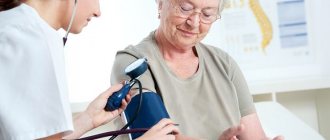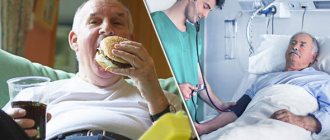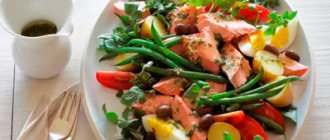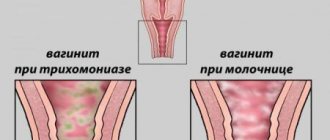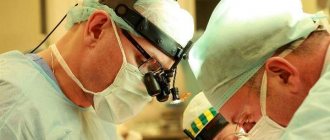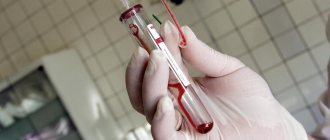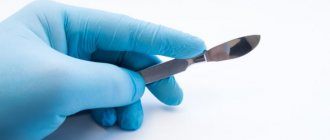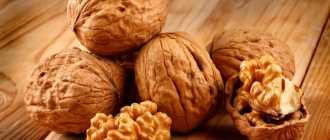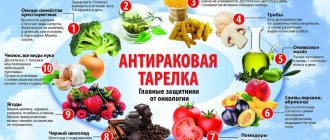Some factors accompanying the period before menopause cannot be changed. For example, the functioning of hormones or the attenuation of reproductive function. However, other unpleasant symptoms can be corrected, if not completely eliminated. For example, with proper nutrition.
To achieve this, add the following foods and substances to your diet.
During menopause, a woman's bones become brittle, like dry branches of an apple tree that are unable to bear the load of fruit. This happens because the body decreases the production of a vital hormone called estrogen. The result of this is calcium leaching and loss of bone mineral density.
To make up for the deficiency, eat foods rich in calcium. These include:
- hard cheese,
- dairy products, especially kefir and cottage cheese,
- sesame seeds,
- broccoli and legumes,
- fish (such as sardines and canned salmon).
During menopause, women's hemoglobin often jumps. This occurs due to slow metabolism and changes in hormonal levels - and results in increased blood viscosity. This threatens thrombosis, stroke and heart attack. Many people develop anemia.
To avoid such conditions, nutrition during menopause for women must necessarily include iron. It contains:
- in lean red meat and liver,
- poultry and eggs,
- leafy green vegetables,
- pomegranates,
- apples,
- nuts,
- buckwheat porridge,
- fortified grain products.
It is a type of insoluble dietary fiber that passes through the digestive system almost unchanged. At the same time, it perfectly absorbs excess liquid, impurities and toxins.
In addition, fiber (which is especially important during menopause!) helps the intestines contract, preventing constipation and speeding up metabolism. This way you will be less likely to gain excess weight. To achieve this, lean on:
- whole grain bread,
- cereals,
- pasta,
- unpolished rice,
- fresh fruits and vegetables.
Proteins (aka proteins) are essential to reduce the loss of muscle mass that inevitably occurs during menopause. However, when choosing proteins, it is important to consider not only the quantity, but also their digestibility.
The fact is that all proteins can be divided into plant proteins (lentils, beans, soybeans, nuts) and animal proteins (meat, eggs, milk). The first ones would seem to be more useful. However, the latter are better absorbed by the body.
Therefore, in order to get the required amount of proteins, you will have to eat two to three times more plant proteins compared to if you chose animal proteins.
Life-giving moisture
As the body ages, the feeling of thirst weakens. And a person needs water, including to prevent digestive problems. It is best to drink clean water, but milk, soups, juices and other liquids also count.
Watch your calories
With age, the number of calories needed to maintain life decreases. So try to eat better, more often, but in smaller portions. Five meals of 200 grams is the ideal daily norm.
The Right Supplements
To cope with the unpleasant symptoms of menopause, supplement proper nutrition and exercise with special medications. For example, non-hormonal “Climaxan”, aimed at reducing menopausal symptoms.
Even at the very beginning of menopause, you need to understand that a lot depends on nutrition: appearance, metabolism, well-being, the absence of age-related diseases. That is why the diet for menopause is recommended for all women who have entered this age. It must be said right away that the diet for menopause should be special; it would be best to draw it up with the help of your doctor. Diets for losing excess weight, which are replete with the Internet and printed manuals, are not only not suitable in this situation, but can even harm the woman.
Why do you need a diet during menopause, and is it needed at all?
A diet for menopause is needed for those who want to delay menopause a little, stay young and beautiful longer, and just feel good, work at full capacity and enjoy life.
Diet for menopause: goals
The main goals of the menopause diet are to:
- Relieving swelling from the extremities and from the entire body as a whole, since water-salt metabolism slows down with age.
- Properly organized nutrition helps normalize blood pressure and prevents its sudden jumps.
- Stimulates the functioning of the heart and blood vessels.
- While on a special diet, you may notice that your head has become fresher and the feeling of aching pain has gone away.
- Proper nutrition helps normalize heat exchange processes in the body. And if you do this, you can immediately get rid of the most debilitating symptom of menopause - hot flashes during menopause. If you can’t get rid of them completely, you can at least reduce their duration, intensity and frequency. A diet for menopause in women with hot flashes also helps get rid of excessive sweating.
- It is also necessary to normalize nutrition so that a woman has an even mood, so that it does not jump from bad to good and vice versa, so that anxiety, irritability and resentment decrease, and both the process of falling asleep and the quality of sleep are normalized.
- If a woman eats right, she will never have problems gaining excess weight.
What is the recommended diet for menopause?
When menopause begins to manifest itself, a woman experiences a number of health problems, poor health, and unstable mood. If you understand that this also applies to you, then do not rush to run to the pharmacy and buy a remedy for menopause.
Menopause medications will not be effective if you do not eat right. Moreover, figuring out what to take for menopause symptoms is quite difficult.
Sometimes, in order to alleviate the lion's share of the symptoms of this condition, it will be enough to improve nutrition during menopause in women. What should be taken into account almost immediately?
- In order to eliminate the most important symptom of menopause, that is, hot flashes, you need to exclude coffee, strong tea, chocolate in unlimited quantities, and sweets from your diet.
- Do you have problems with blood pressure? Try to switch to a new drinking regimen. Everyone loves to drink a cup of aromatic coffee or strong tea in the morning. This helps you cheer up and start a new day in a good mood. But if you experience problems with blood pressure during menopause, then you will have to abandon this morning ritual in favor of natural fruit and vegetable juices. This is also very tasty and healthy, and starting the day with a glass of juice is no less healthy. If you cannot do without a warm drink, then you can drink exclusively green tea varieties, and forget about all the others.
- The digestive system begins to work worse and worse with age. Therefore, you should not overload it again. Doctors advise women during menopause not to reduce the amount of food they eat per day, but to reduce the portion. That is, you need to eat less, but often. There are foods that help the digestive system be more active. These are seeds and nuts, soy, legumes, so try to include this delicacy in your daily menu.
Reviews
Considering the opinions and reviews of women over fifty years of age, dietary nutrition for women does not represent any particular difficulty; it is a kind of correct and balanced diet. A large number of women continue to eat the same way even after the disappearance of menopausal symptoms. The diet helps improve overall health, skin and hair acquire a normal appearance, and the functioning of the glands that are responsible for the process of secreting sweat and subcutaneous fat is stabilized.
Nutrition during menopause and hot flashes should be combined with some recommendations:
- do not allow the body to overheat, dress only according to weather conditions;
- sleep - in a room with fresh air;
- refuse to take a bath with hot water;
- physical training;
- to give up smoking;
- rest.
In some cases, representatives of the fair half of humanity take hormonal drugs. But often the problem of weight gain arises, after which the selection of the right diet begins and a diet is selected.
Before prescribing any medications for yourself, a woman should consult a doctor to prevent negative consequences. For example, hormonal therapy requires special correction.
Diet for weight loss during menopause
It also happens that with age a woman gains excess weight. It is very easy for women to recover during menopause, since metabolism is impaired. If you have already gained weight, then it is absolutely necessary to fight the gained weight. In this case, you need a special diet that will help both fight the symptoms of menopause and not gain extra pounds, burning off the existing ones. Before you start losing weight during menopause, you need to clearly understand that it will not be as easy to do as at a young age, so be patient and do not give up after the slightest failure.
What to do to get your figure in order during such a difficult period of life as menopause?
During menopause, in order to lose weight, you will need to make the following adjustments to your daily menu:
- In order to keep your weight within normal limits, try to eat at least 1200 calories per day, but it is also not recommended to greatly exceed this figure. 1200 is the optimal calorie intake , which allows all organs and their systems to function normally, but not to gain extra pounds. This change will help you shed pounds effectively, but don't expect instant results.
- Your menu should consist primarily of plant foods, which contain a large amount of fiber . This substance helps to ensure that disturbed metabolism returns to normal, so that digestion processes proceed more easily, so that the internal organs and skin of a person restore their work as usual.
- Maintain drinking regime . You need to drink at least 2 liters of pure water a day without any impurities or flavoring additives. Also include liquid dishes - soups - in your diet. Eating them is very beneficial in the sense that you can fill up even with a small amount of soup.
- During menopause, it is important to consume dairy products , as they contain a lot of calcium, this need was discussed above. However, if you want to lose weight, then you will have to choose such products especially carefully: with a reduced fat content, or low-fat at all, so as not to gain weight during menopause.
- There is nothing wrong with the fact that a woman may feel hungry between meals. There is no need to endure it and faint from hunger. For snacks and to relieve feelings of unbearable hunger, you can eat various vegetable salads seasoned with lemon juice. It is simply impossible to gain weight from such food, the stomach accepts it “perfectly”, the feeling of hunger goes away for a while, and you can continue to live and work normally.
- Reconsider your attitude towards cooking. Preference should be given to boiling, steaming, and baking in the oven. Frying anything in a frying pan, especially using any oils, is strictly not recommended if you really want to get your body in order.
- Diversify your diet with soybeans and legumes : eat them as a side dish, add them to salads and soups, as an independent dish.
What foods are prohibited during menopause?
There are a number of foods that are best avoided by women who have entered menopause. There is a list of products for menopause, the components of which will have to be abandoned. These are products such as:
- Alcohol. An exception during menopause can be made only occasionally, drinking one glass of really high-quality wine during the holidays.
- Avoid spicy foods, as such foods aggravate temperature changes.
- Try not to eat foods that contain large amounts of salt. These are pickles, smoked meats, and salted cheeses.
- Sweet pastries and confectionery. Such foods contribute to excess weight gain and increase the risk of developing breast cancer. Therefore, the diet during menopause recommends completely abandoning such foods.
- Sweet carbonated drinks. Gaining weight from such drinks costs nothing, since the sugar content in them exceeds the permissible limit. Even young girls recover from them in a matter of months.
Thus, dietary nutrition during menopause is very important, as it helps maintain health, well-being, and performance. Eating during menopause does not mean eternal hunger strike or giving up your favorite delicious food. The only main thing is to prepare this food correctly and not overuse harmful foods.
Interesting and educational video on this topic:
Which occur after 50 years
It is so inherent in nature that with age a woman loses her reproductive abilities. From about 45 to 50 years old, most women experience menopause. It may be earlier – from 40 years old.
A completely natural process can cause a lot of unpleasant sensations, which are called hot flashes. Failures in thermoregulation are sometimes so severe that they interfere with sleep at night, and during the day they prevent you from working and communicating normally due to fever and excessive sweating.
These symptoms of menopause are complemented by shortness of breath, dizziness, redness of the face, rapid heartbeat, and weakness. Added to this is the rapid aging of the skin: the appearance of wrinkles, dryness, loss of elasticity. All these are external manifestations of internal changes.
During menopause, chronic diseases begin to worsen, and health problems that were not diagnosed in time also manifest themselves. To avoid serious consequences, it is necessary to undergo a comprehensive examination in advance.
A properly selected set of exercises, hormonal therapy, and homeopathy will help a woman get through this period easier. Nutrition during menopause will have to be reconsidered, your diet, as well as your entire lifestyle, will have to be changed.
Recommendations from nutritionist Koroleva
Physical activity and giving up bad habits
When menopause occurs in a woman's life, eating according to dietary standards is extremely important for the body. But in addition, to reconsider your diet, you need to pay attention to your lifestyle in general. If a woman stops eating fatty and sweet foods, but at the same time leads a sedentary lifestyle and drinks alcohol in large quantities, health problems cannot be avoided.
The “three pillars” of good health and a healthy body for a woman who has started menopause are:
- proper nutrition;
- physical activity;
- saying goodbye to bad habits.
The concept of “physical activity” does not mean that you need to suddenly take up sports seriously at the age of 40+. You can ride a bike, attend yoga classes or a swimming pool, or go dancing. Even daily long walks in the fresh air will help avoid obesity and will be beneficial for the cardiovascular system.
Bad habits such as alcohol and smoking deal an additional blow to the female body, which is prone to diseases, so if previously there was not enough determination to give them up, now it can become a real salvation.
Why you need to follow a diet, the dangers of poor nutrition
The thing is that the ovaries stop producing estrogens, and because of this, malfunctions occur in many organs and systems. The skin and bones, genitourinary organs, and nervous system suffer the most. If you don't balance your menu, it can lead to the following problems:
- Osteoporosis develops - a very dangerous consequence of menopause, which is fraught with complex fractures after 55 years, especially of the femoral neck.
- Due to poor absorption and lack of calcium, teeth suffer greatly.
- Intestinal motility is weakened, constipation is more common, and nutrients are poorly absorbed.
- I am worried about mood swings, sleep problems, hot flashes, which interferes with work.
- Libido decreases, vaginal dryness appears, and the risk of genitourinary infections increases.
- Hormonal imbalance aggravates all kinds of female diseases (mastopathy, uterine fibroids).
- Due to the fact that a woman begins to gain weight with age, the load on the heart increases.
- Hypertension increases, which can lead to stroke.
- Disturbances in the functioning of the endocrine system occur, contributing to obesity or the appearance of excess weight.
- Dryness and wilting of the skin and all mucous membranes, including the eyes, develop.
Even more interesting:
Unidox solutab treatment
Eggworm photo of a child
Nutrition rules during menopause
To make it easier to cope with age-related changes, you need to eat right. First of all, you should reduce the caloric content of your diet so as not to gain weight and to avoid stress on your heart and joints. To do this, you can reduce the portion size by a third of the usual size.
Diet
The feeling of heaviness in the stomach only intensifies the unpleasant symptoms of hot flashes. When a large volume of food, especially hot food, enters it, it causes an increase in body temperature. Therefore, you should eat food in small portions, but often: 5-6 times a day.
It is important to follow a diet, have a proper breakfast, and have dinner no later than 2 hours before bedtime. Dinner is preferably light, since overeating will only worsen insomnia problems. The serving size for lunch is no more than 300 g, for other meals - 200 g.
In this case, you should give preference to boiled, steamed or stewed foods, avoiding fried foods.
To improve metabolism
Women with an athletic figure experience both menopause and postmenopause much easier.
To prevent hormonal changes from greatly affecting metabolic processes, physical activity is important, but without male strength exercises, a daily walk or 10,000 steps or more is enough. Particular attention should be paid to the liver, it is the one that detoxifies the body. In addition to pharmaceutical hepatoprotectors, milk thistle, oils, especially flaxseed, whole grains and nuts, grapefruit, beets, carrots and pumpkin, as well as rosehip decoction have a positive effect on this organ. It is better to start cleansing the liver at the age of 35-40. Its main enemies are saturated (animal fats) and alcohol.
To strengthen and clean blood vessels from cholesterol plaques
Omega 3 is the strongest protector against atherosclerosis. These fatty acids are important for lowering cholesterol levels and preventing cardiovascular pathologies. It is especially good to eat fish for these purposes; it also contains fat-soluble vitamins A and D.
Fish oil preparations are suitable instead. We tell you more about omega 3, 6, 9 and what products contain them on our website.
To normalize blood pressure
Since the woman begins to recover when ovarian function fades and metabolic processes are disrupted, this leads to the development of hypertension. Reducing the consumption of coffee and strong tea helps normalize blood pressure.
You will have to give up alcohol, salt, sugar, and even more so smoking.
Essential Vitamins and Minerals
The most necessary mineral during this period is calcium . It is important for bones and teeth. Due to a lack of estrogen, it is washed out of the body, which makes bone tissue very fragile. Useful sources of calcium are cottage cheese and hard cheese, sesame seeds.
These calcium-rich foods should be eaten daily. It is also beneficial to eat fish: it contains a lot of phosphorus, which bones need.
The list of important minerals includes potassium and magnesium . Potassium supports the functioning of the heart, and with a lack of magnesium, disturbances in the functioning of the nervous system occur. Without it, sudden mood swings cannot be avoided during hormonal imbalance.
Of the vitamins, it is worth paying special attention to vitamin D , because without it there will be no normal absorption of calcium.
Vitamin E is also needed ; it is responsible for reducing dryness and preventing aging quickly.
Folic acid is the third important B vitamin; it helps maintain blood composition at the required level, improves immunity and skin condition.
Antioxidants
There is a whole group of substances that can slow down oxidation processes, and therefore aging. These are antioxidants, which plant foods are especially rich in. For example, carotenoids - lutein, lycopene, astaxanthin, resveratrol.
Their daily use helps to prolong youth. We described in more detail about the sources of antioxidants, with a comparative table of content in food products, in this article.
Probiotics to restore gastrointestinal flora
In order not to experience problems with digestion and especially with the intestines, it is necessary to enrich the diet with probiotics - beneficial microorganisms. These can be capsules containing a huge amount of them. The main thing is to store and take them correctly, according to the instructions.
Here is a list of products that contain beneficial microflora:
- all fermented milk drinks (kefir, fermented baked milk, yogurt);
- cheese, cottage cheese;
- sauerkraut;
- soaked apples.
Treatment of hot flashes
The onset of menopause is not a painful condition that requires intensive therapy. Because the process is natural and inevitable. But in most cases, it is impossible to do without medications. Although, if hot flashes do not cause much concern to a woman and do not affect the quality of life, then there is no point in taking medications.
, "Doxepin", "Azafen"
| Drugs | Hormonal | Non-hormonal, dietary supplements | Antidepressants |
| "Ovestin" | Relieves all menopausal symptoms in the shortest possible time | ||
| "Divina" | Contains estrogens. Helps prevent osteoporosis | ||
| "Livial" | Prescribed one year after the last menstruation, helps prevent the development of osteoporosis | ||
| "Lerivon" | |||
| Calming | |||
| "Prozac", "Inquizan", "Nortriptyline" | Stimulating | ||
| "Maprotiline", "Anafranil" | Have a complex effect | ||
| "Lignarius" | Contains a special substance – lignan, isolated from spruce knots | ||
| "Tsi-Klim" | Active ingredient: black cohosh root extract | ||
| "Climaxan" | Can eliminate all manifestations of menopause | ||
| "Remens" | Homeopathic medicine containing 3 types of phytohormones | ||
| "Feminal" | Dietary supplement containing red clover | ||
| "Estrovel" | Multicomponent dietary supplement | ||
| "Tibolon" | Eliminates most symptoms of menopause | ||
| "Klimonorm" | Contains progesterone and estrogen | ||
| "Estrogel" and "Divigel" | Gel-like preparations for external use containing estradiol |
Hot flashes are accompanied by an increase in blood pressure, which is especially dangerous in hypertension. Menopausal “shocks” can cause the development of hypertension, and even provoke a stroke.
To control blood pressure levels, the patient may be recommended to use antihypertensive drugs, for example, Capoten and Anaprilina. To reduce the severity of episodes of hot flashes, it is necessary to take drugs with antispasmodic, anticolvusant and anticonvulsant effects (Gabagamma, Catena, Neurontin). The drugs are serious and should be taken under the supervision of a doctor.
To eliminate the deficiency of nutrients that stimulate the functioning of vital organs and systems, the doctor may recommend vitamin and mineral complexes. They help relieve menopause.
Menopace and Lady's Formula Menopause are popular. Sedatives such as Velaxin and Ephelon, which are prescribed for those who suffer from insomnia, also have a good effect. Those who do not consider homeopathy a pseudoscience can try homeopathic remedies - harmless and possibly effective - “Klimakt-Hel” and “Klimaktoplan”.
Many women feel the approach of a hot flash, and already at this time you can help the body prevent the development of an attack or reduce its severity, even at home.
During the period of harbingers of the onset of hot flashes during menopause, doctors advise proceeding according to the following scheme:
- Provide a flow of fresh air (go outside or open a window, turn on the air conditioner, unbutton the top buttons of your clothes). This will improve heat transfer and relieve symptoms.
- Drink a few sips of cool water.
- Redistribution of blood throughout the body will help stop the development of an attack. To do this, you need to immerse your feet in hot water and apply a cold compress to your head.
- Breathing exercises will help restore the tone of the autonomic nervous system and cope with hot flashes during menopause. These breathing exercises should be performed according to the following scheme: take a deep breath through your nose for 5-7 seconds, hold your breath for 12-15 seconds, then exhale slowly through your mouth. Breathing is done through the stomach.
Nutrition during menopause should provide the body with all the necessary substances, without causing weight gain. Therefore, you should exclude simple carbohydrates from the menu (carbonated sweet drinks, confectionery, flour dishes).
Additionally, the diet should include foods containing phytoestrogens - substances similar in structure to estradiol. They are able to compensate to some extent for estrogen deficiency and ease the course of the menopause.
In addition, some animal products contain components that resemble estrogens. These are dairy products, especially blue cheeses.
Hormone replacement therapy (HRT) is the “gold standard” for treating various manifestations of menopausal syndrome, including hot flashes and sweating.
To determine the expected benefits and risks when prescribing HRT, special scoring systems are used.
For hormone replacement therapy, both natural (17-β-estradiol, estradiol valeate, estriol) and synthetic (ethinyl-estradiol, mestranol) estrogens can be used.
The duration of hormone treatment can range from 3 (short-term strategy) to 10 or more years (long-term strategy).
The dose of the drug is selected so that the concentration in the blood is as close as possible to that during premenopause.
The range of drugs containing estrogens is very wide: Angelique, Trisequence, Klimen, Klimonorm, Cyclo-Proginova, Divina, Livial, Kliogest. All these drugs are available in tablet form. The packaging of these medicines is designed to take 1 tablet per day in such a way as to simulate a normal menstrual cycle.
Reviews from women who took these drugs indicate a significant reduction in the severity of menopausal syndrome, rare side effects, and good tolerability.
There are also drugs for percutaneous administration in gel form: Divigel, Estrogel. The gel is applied either to the skin of the arms, abdomen and lower back, or to the area of the thighs, buttocks and abdomen.
Vitamin therapy
The most important vitamins during menopause are:
- Vitamin A (Retinol). It has a significant positive effect on the skin and mucous membranes, restoring their elasticity and moisture. This vitamin is found in large quantities in carrots, blueberries, spinach, eggs, and beef liver.
- Vitamin E (Tocopherol). This substance, in addition to its strong antioxidant effect, has the ability to increase the sensitivity of estrogen receptors. There is a lot of this vitamin in vegetable oils, eggs, and wheat sprouts.
Homeopathy offers women during menopause the following drugs to combat hot flashes:
- Klimakt-heel (in the form of sublingual tablets);
- Nervo-heel (sublingual tablets);
- Mulimen (drops for oral administration);
- Hormel CH (drops for oral administration);
- Klimaktoplan (in tablet form);
- Klimaxan (10 g granules).
The effectiveness of these medications remains controversial, but many women note a decrease in the symptoms of menopause after taking them.
Folk remedies
Traditional medicine offers a large number of recipes that can to some extent improve well-being during menopause. But the use of these funds cannot replace full treatment. In folk medicine, decoctions, infusions and poultices with various plants are widely used: chamomile, celandine, cinquefoil, yarrow, blackberry leaves, fragrant woodruff, marsh dried grass. All these plants have a pronounced calming effect or weak estrogen-like activity.
Phytotherapy
The few plants recognized by official medicine as substances that can actually combat the manifestations of menopausal syndrome include black cohosh and soybean.
Soy isoflavonoids, used in the form of Inoclim capsules, judging by the reviews of women who used this drug during menopause, can improve overall well-being and reduce the number and severity of hot flashes. The medicine should be taken 1 capsule 1 time per day for 1 month.
The components of the black cohosh plant are contained in such preparations as Klimadinon, Qi-Klim, Estrovel, Remens. The effectiveness of these drugs for the treatment of symptoms of menopausal syndrome has been confirmed in a number of clinical studies. The drugs are available in the form of tablets, capsules and drops for oral administration. If the medicine comes in tablets, you need to take 1 piece in the morning and in the evening. The duration of treatment is no more than 3 months.
During menopause, a woman should avoid heavy physical activity. It is recommended to engage in race walking, skiing, and Nordic walking. You should continue exercising until the first signs of fatigue appear. Every morning it is recommended to do exercises, including stretching exercises and breathing exercises. Yoga and qigong gymnastics will be of great benefit.
It is necessary to combat the vegetative-vascular manifestations of the pathological course of menopause, taking into account many factors:
- patient's age;
- duration of attacks;
- frequency of paroxysms;
- severity of manifestations;
- presence of concomitant diseases;
- individual drug tolerance.
Hot flashes can be managed effectively using a variety of methods.
The patient's condition can be alleviated by taking hormonal medications. To compensate for sex hormones that the ovaries have stopped producing, optimal doses of hormonal drugs are used in various dosage forms:
- tablets;
- plasters;
- gels.
According to patient reviews, when using hormone replacement therapy, there is a significant decrease in the number and severity of hot flashes. You should not be afraid of prescribing HRT, since modern medicines contain estrogens, which are as close in chemical structure as possible to the hormones synthesized in the female body, therefore:
- have minimal side effects;
- effectively remove the negative manifestations of menopause;
- prevent long-term metabolic disorders;
- reduce the risk of malignant transformations, in particular of the large intestine.
List of foods you should avoid
Some foods and drinks provoke disruptions in thermoregulation, so they are undesirable during hot flashes. This list includes ingredients that increase blood circulation, increase heart rate, or promote weight gain.
Meals during menopause should not include:
- Coffee. All caffeine-rich foods cause increased blood pressure. Therefore, they should be excluded from the diet.
- Strong tea. The amount of black tea will have to be reduced. It is better to switch to green broadleaf or matcha. Drink slightly warm, not hot.
- Alcoholic drinks. The only thing worth allowing is small doses of dry red wine, rich in antioxidants. The recommended dosage per day is up to 100 ml.
- Smoked meat and salted fish are prohibited foods during menopause.
- Spicy food, spices, herbs. They promote fluid retention in the body.
- Sugar and sweets (sweets, cakes). During menopause, these products add extra pounds and only increase mood swings. Honey can be eaten in small quantities if you are not allergic to bee products.
- Meat. Nutritionists are in no hurry to ban it completely, but they strongly recommend limiting fatty varieties (pork, duck). Also, you should not eat offal, since they contain a lot of fat, and high-calorie foods lead to the fact that women after 40-45 begin to rapidly gain weight. Meat dishes can only be prepared for the men you love.
You definitely need to reduce the amount of salt . In order not to gain weight, you will have to give up mayonnaise . And no fast food .
TOP 3 “pro” and “anti”
There are TOP 3 products that are very important to include in the diet of women after 50 years of age, when menopause has already arrived and the functions of the gonads have finally “fallen asleep.”
- cranberries are a source of phytoestrogen, which in its structure and functions is similar to estrogen in the female body. The berries can be used in any form: raw, frozen, dried. The main trump card is preventing old age, beneficial effects on the heart and blood vessels, improving skin condition;
- Crab meat is a source of arginine. This is a special amino acid, which in youth is produced by the body independently, and thus its deficiency is compensated (if arginine is supplied in small quantities from food). During menopause, its production decreases, and entry into the body from the outside is the only source of this amino acid. It promotes vasodilation, which, in turn, prevents diseases of the cardiovascular system;
- Fermented milk products are very useful for women after 45-50 years. Lack of estrogen causes calcium deficiency, which can cause osteoporosis. Low fat fermented milk will help restore balance.
The hit parade of “ANTI” products, also consisting of three positions, is as follows:
- Alcoholic drinks and spicy dishes aggravate hot flashes, clog blood vessels, and contribute to the formation of blood clots. The exception is dry red wine, which is an antioxidant;
- salt retains fluid in the body, which causes swelling. Sodium chloride also promotes leaching of calcium from bones, which increases the risk of developing osteoporosis;
- sweets and baked goods made from white flour are products that are a source of “fast” carbohydrates that contribute to weight gain.
Adjusting the menu in favor of the right products will help neutralize the manifestations of menopause and avoid possible complications for all body systems.
List of healthy foods for menopause that should be included in your daily diet
Nutrition during menopause must include:
- Dairy products to provide sufficient calcium. There should be as many of them in the diet as possible. It is worth giving preference to low-fat options. Butter is a contraindicated product.
- Vegetable oil. It is a source of omega-3 and omega-6 polyunsaturated fatty acids, which helps lower cholesterol. In addition, oils contain a lot of vitamin E, which slows down aging.
- Fish and seafood. Mackerel or salmon will provide the necessary amount of omega 3 to fight atherosclerosis. You should eat a variety of seafood at least twice a week. In addition to fat, fish contains essential phosphorus.
- Vegetables and fruits in raw form. They are a valuable source of minerals and vitamins, as well as fiber for good intestinal function and weight loss. There should be a lot of them on the menu.
- Nuts. They provide the body with magnesium for peace of mind, and are a source of unsaturated fatty acids and vitamin E.
- Bananas and dried fruits (dried apricots, raisins). These foods are good for the heart because they are rich in potassium.
- Bran, unpolished cereals, wholemeal flour, durum wheat pasta. These foods provide a feeling of fullness, but do not contribute to weight gain.
- Flax seeds or flaxseed oil. These products eliminate dry mucous membranes, improve the health of hair and nails, and prolong youth. Rich in proteins, amino acids, they help cleanse the body of toxins. Flax seed is also used for weight loss.
- Soy milk, cheese to replenish estrogen.
- Herbs rich in phytohormones.
All healthy foods during menopause should not be fried . At fifty, it's time to get a multicooker or double boiler. This will ensure the preservation of vitamins during heat treatment.
Essential Vitamins and Minerals
Nutrition should include all necessary vitamins and minerals. Doctors also recommend systematically taking vitamin complexes.
Calcium and boron
Calcium prevents the occurrence of osteoporosis and helps strengthen bone tissue, in particular enamel. Calcium is necessary for the functioning of the myocardium and nervous system. A sufficient amount of calcium in the body prevents the development of pain in the joints and spine. Calcium is found in fish, avocados, broccoli, almonds and dairy products. Boron is found in peaches, asparagus, prunes and strawberries.
Magnesium
The mineral has a positive effect on the nervous system in women. A lack of magnesium can cause insomnia. Magnesium has a sedative and calming effect. The mineral is found in nuts, cereals and legumes.
Omega 3
Polyunsaturated acids have a beneficial effect on heart function, prevent brittleness of hair and nails, neurological pathologies, and inflammatory processes. Omega-3 is found in vegetable oils and in some types of fish, such as salmon, sardines, trout, tuna and shrimp.
Lignins
Lignins are contained in flax seeds and eliminate discomfort in the vagina due to the presence of natural hormones.
Vitamin E
Tocopherol prevents dryness of the intimate area, swelling in the mammary gland, and normalizes the functioning of the cardiovascular system. Vitamin E prolongs ovarian activity. The vitamin is found in the following foods:
- soybean, corn, olive and butter oils, wheat germ;
- milk, sour cream, cream;
- vegetables and fruits;
- nuts.
An example of a menu for hot flashes for women over 50 years of age
The diet for menopause in women is compiled based on the following proportions:
- 30% – unsaturated fats;
- 25% – protein foods;
- 30% – fiber;
- 15% – slow, complex carbohydrates.
Higher calorie foods should be eaten early in the day, and dinner should be light. For breakfast, it is good to prepare buckwheat porridge, cereal with milk or fermented milk drinks. A smoothie with the addition of banana or whole grain bread with cheese, orange or apple is suitable.
Dinner can also be protein-rich and consist of boiled chicken or low-fat cottage cheese, supplemented with fruit.
https://youtu.be/cLDjhHKvhn4
Diet menu for a week from nutritionists (to lose weight)
Just 15-20 days of proper nutrition will help to significantly reduce the “cons” of menopause. Here is a sample menu for a week for weight loss:
Monday
- Breakfast. Cheese pancakes, yogurt.
- Snack. Orange or grapefruit.
- Dinner. Vegetable soup, bran bread, a piece of boiled chicken.
- Afternoon snack. Nuts (walnuts, cashews).
- Dinner. Arugula and tomatoes with lemon juice, baked fish.
Tuesday
- Breakfast. Pumpkin porridge or casserole with dried fruits.
- Snack. 200 ml yogurt or fermented baked milk.
- Dinner. Fish soup, 2 slices of black bread.
- Afternoon snack. Orange.
- Dinner. Pasta with seafood, seaweed.
Wednesday
- Breakfast. Oatmeal with dried fruits.
- Snack. 200 ml of any fermented milk drink.
- Dinner. Veal soup.
- Afternoon snack. Apple or pear.
- Dinner. Vegetable salad and boiled chicken.
Thursday
- Breakfast. Cottage cheese with fruit or cottage cheese casserole.
- Snack. Apples or apricots.
- Dinner. Vegetable soup, boiled fish, whole grain bread.
- Afternoon snack. Kefir or ayran.
- Dinner. Stuffed cabbage rolls with chicken or vegetables.
Friday
- Breakfast. Buckwheat porridge, fresh fruit.
- Snack. A glass of yogurt.
- Dinner. Chicken soup, cutlets.
- Afternoon snack. Kiwi or orange.
- Dinner. Baked fish, beet salad or vinaigrette.
Saturday
- Breakfast. Oatmeal with dried fruits.
- Snack. Apple or carrot.
- Dinner. Vegetable soup, toast, baked turkey fillet.
- Afternoon snack. Nuts.
- Dinner. Steamed fish with rice and broccoli.
Sunday
- Breakfast. Low-fat cottage cheese with berries and fruits. Green tea.
- Snack. A glass of vegetable juice.
- Dinner. Chicken soup, whole grain bread.
- Afternoon snack. Kefir or fermented baked milk.
- Dinner. Buckwheat porridge with meatballs, fresh cabbage with carrots.
Video with advice from nutritionist Alina Novikova
Proper nutrition during menopause in women is the key to health and the key to losing weight. A healthy lifestyle helps make menopause easier. And proper nutrition will compensate for the lack of estrogen and protect against hot flashes, osteoporosis and other diseases characteristic of this period.

